Parents Guide for Study Abroad Programs
Welcome
Congratulations! Your son or daughter has chosen to take part in a volunteer internship abroad.
An important part of the process of gaining admission to healthcare education programs is access to clinical experience. Now, this does not mean that they will be practicing medicine before they are trained, they will not be performing any procedures or anything that they have not been trained to do before their trip. They will be shadowing doctors and other mentors and witnessing healthcare at its most basic. They will be given the opportunity to make a difference in these countries who do not have the benefits or resources that are found at home.
During their downtime, they can take advantage of some of the adventures we plan for each group of interns. Safaris in Africa, and Journey to Machu Picchu in South America are two popular choices.
Following their trip, participants will be given access to our Medical School Admissions Consulting program to further prepare them for their career in healthcare.
The following pages will introduce you to our program. It will give you details that you, as a parent, will want to keep handy so that you can be assured that your son or daughter is having the time of their life while preparing themselves for the rest of their lives.
Sincerely,
Roger Voter and Homayon Ghassemi
International Medical Aid
Company History
International Medical Aid was founded by Roger Voter and Homayon Ghassemi during their final year at John Hopkins University in Baltimore, Maryland. It came about as a result of their senior thesis which investigated the reasons for healthcare inequality in developing countries. They also sought to identify those populations who found themselves most at risk.
Their research led the two to develop a model for a not-for-profit sustainable organization that would provide those at-risk populations with access to medical care and related resources. Their thesis was submitted in June 2012 shortly after Voter and Ghassemi took their first successful healthcare campaign to Quito, Ecuador.
Since that first journey, IMA has expanded the scope of our Global Initiative to giving those future healthcare professionals an opportunity to.
Meet the IMA Team

Homayon Ghassemi
Co-Founder and President
An experienced leader and global health advocate, Homayon has developed and implemented full-scale public health campaigns around the world. Under his direction, IMA has rapidly expanded its operations in South America, East Africa and the Caribbean, and developing a uniquely sustainable model that combines elements of not-for-profit and for-profit organizations. Today, Homayon continues to lead the development of IMA’s subsidiary businesses; namely, IMA Electives, IMA Safaris and IMA Social Impact Consulting.

Roger Voter
Co-Founder and Executive Vice President for Business Affairs
With extensive experience in small business and enterprise management consulting, Roger is instrumental in crafting and implementing IMA’s corporate strategy. Focused on developing long-term and mutually beneficial relationships, Roger negotiates vital partnerships between IMA and other healthcare organizations. Roger holds a Bachelor of Science from Johns Hopkins University.

Dr. Mohammad Ghassemi, MD
Vice President and Medical Director
With nearly forty years of experience in healthcare, Dr. Ghassemi’s clinical and practical understanding serves as the foundation for IMA’s globally accepted medical protocols. Dr. Ghassemi is also instrumental in locating and vetting qualified medical professionals for IMA’s humanitarian initiatives around the world. Dr. Ghassemi is a practicing physician and active community leader in the Kansas City area.


Phares Odhiambo
- Program Director, East Africa
Phares is a zealous Social Scientist with over 7 years’ experience managing Healthcare Internships and Humanitarian Initiatives in East Africa. He is passionate about working with and empowering local communities. At IMA, Phares’ focus areas include facilitating hospital placements of interns and maintaining relationships with host organizations and communities. In his spare time, Phares loves to travel and read.
His best read thus far is “Born A Crime” by Trevor Noah.


Phares issuing one of International Medical Aid’s intern with a Certificate of Completion








Phares issuing one of International Medical Aid’s intern with a Certificate of Completion




Phares issuing one of International Medical Aid’s intern with a Certificate of Completion


About Phanes Odhiambo
-
How long have you lived in Kenya? What is your favorite part of living in Mombasa?
I am born and raised in Mombasa. Mombasa is a beautiful city with warm and friendly people. It is home to very beautiful white sandy beaches, like the Diani Beach which ranks as one of the world’s most beautiful beaches.
-
?How did you get involved with International Medical Aid?
I was working with community-based organizations here in Mombasa when I met one of the co-founders of IMA, Homayon Ghassemi who at the time was on an internship at the Coast Provincial General Hospital. Homayon alongside Roger Voter (IMAs other co-founder) were also developing a project that was focused on methods of improving access to healthcare for the world’s most underserved people at the time. This is what yielded to the first IMA Humanitarian Initiative in East Africa for which I was a great resource to, helping identify and establishing partnerships with the various communities. When the organization diversified to facilitating hospital placements, IMA took up more responsibility; developing relationships and facilitating hospital placements for every intern.
-
What important things should participants know about Kenya prior to departure?
Interns should be well versed with the culture of the people of Kenya and Vaccinations required especially the Malaria prophylaxis. They also need to know that systems here are less developed, nevertheless, Kenya is a beautiful country with the most hospitable people.
-
When, in your opinion, is the best time of year for interns to travel to Kenya
The summer, the weather is most favourable during this time. There are also lots of fun activities that interns can undertake during this time. One of my favorite treks is the Safari to the Masai Mara Game Reserve, this should be a bucket list item for every one traveling to Kenya.
-
What does a typical orientation include?
A typical orientation involves an introduction to the cultural norms in Kenya as well as a comprehensive tour of the city they will be volunteering in. One of the common challenges faced by participants when undertaking a program abroad is coping with culture shock. How does International Medical Aid assist? IMA provides a comprehensive Pre-Departure Guideline that details what the interns should expect while on program coupled with a strong support system from the local staff.
-
How do you help ensure every intern has a fulfilling experience?
I handpick placement sites and departments and match them to best suit the skill sets and education background of each of our participants.
-
What makes your program unique to others?
IMA has a not-for-profit model that reinvests back into the communities that we work with through humanitarian initiatives such as the Medical and Hygiene Clinics to underserved communities. IMA is also based on three core values: Integrity, Mutual Respect and Commitment


Christabel Njeru
- Program Mentor, East Africa
Pre-Med/Health Fellowships (Kenya)
Christabel is a young creative from Kenya with over 3 years’ experience in the fields of Content Marketing and Business Development. At IMA, Christabel’s focus is on the coordination of each internship; she is passionate and dedicated to ensuring a smooth and satisfactory internship experience for each of IMA’s interns. Christabel also leads the weekly Clinical Debriefing Sessions and assists with IMA’s Humanitarian Initiatives. On a slow day, you will find Christabel dancing to Zumba or catching up on a book.










Phares issuing one of International Medical Aid’s intern with a Certificate of Completion




Phares issuing one of International Medical Aid’s intern with a Certificate of Completion


About Christabel Njeru
-
How long have you lived in Kenya? What is your favorite part of living in Mombasa?
I am born and raised in Kenya. My favorite part about living in Mombasa is the calmness that the city exudes. Having lived in Nairobi (the capital city of Kenya) which is quite fast-paced, I am able to appreciate quiet and less hectic days in Mombasa.
-
How did you get involved with International Medical Aid?
I got involved with IMA on a reference by a colleague, I interviewed and got the position that I currently hold.
-
What important things should participants know about Kenya prior to departure?
It is essential for participants to be open-minded. From experience, interns with an open mind are able to fit in almost effortlessly into the culture and the healthcare system, which is quite different from what most interns have interacted within their home countries.
-
When, in your opinion, is the best time of year for interns to travel to Kenya?
The summer, Interns can enjoy the warm weather and a buzz of activities including a trek to the Masai Mara Game Reserve for the famous 8th wonder of the world: The Wildebeest Migration which takes place between July and October.
-
What does a typical orientation include?
A typical orientation at IMA includes: 1. A local area orientation where interns get acquainted with the local area and amenities around them. 2. It also involves an internship orientation that provides an overview of the internship, advice on what to expect while volunteering in Kenya and also some guidelines on the basic standards of conduct to observe in and out of the placement site. 3. Finally, we conduct an orientation of the hospital during which interns are provided with a brief overview of the hospital detailing the various departments and staffing. Included also in this orientation is a tour of the hospital which interns get to attend prior to beginning their rotations at the hospital
-
One of the common challenges faced by participants when undertaking a program abroad is coping with culture shock. How does International Medical Aid assist?
Firstly, we equip all our interns with a comprehensive Pre-Departure Guide detailing the need to know facts about Kenya: Linguistic Affiliation, Ethnic and Religious Makeup as well as Cultural Norms. Upon arrival, interns are also taken through a thorough local area and internship orientation within the first 24 hours of the program. The aim being to make it easy for our interns to blend into the new environment. We also have Weekly Debriefings, amongst them a debriefing on the History of Kenya which gives a detailed background of Kenya and the culture of the people of Kenya. This debriefing is provided earlier on in the program.
-
How do you help ensure every intern has a fulfilling experience?
I coordinate and provide logistical support on the day to day activities of all interns in Mombasa. I also lead the Weekly Debriefings.
-
What makes your program unique to others?
IMA has a not-profit model; we reinvest back into the communities that we work with through our humanitarian initiatives being the Medical and Hygiene Clinics to underserved communities. Our internship programs are also planned in exceptional detail with an all-inclusive package. We are amongst the few if not the only organization that provides Medical School Admissions Support at no additional cost.
-
Why should future participants be excited to join International Medical Aid
The IMA experience is unrivaled: It is holistic incorporating learning, philanthropy and fun all in one
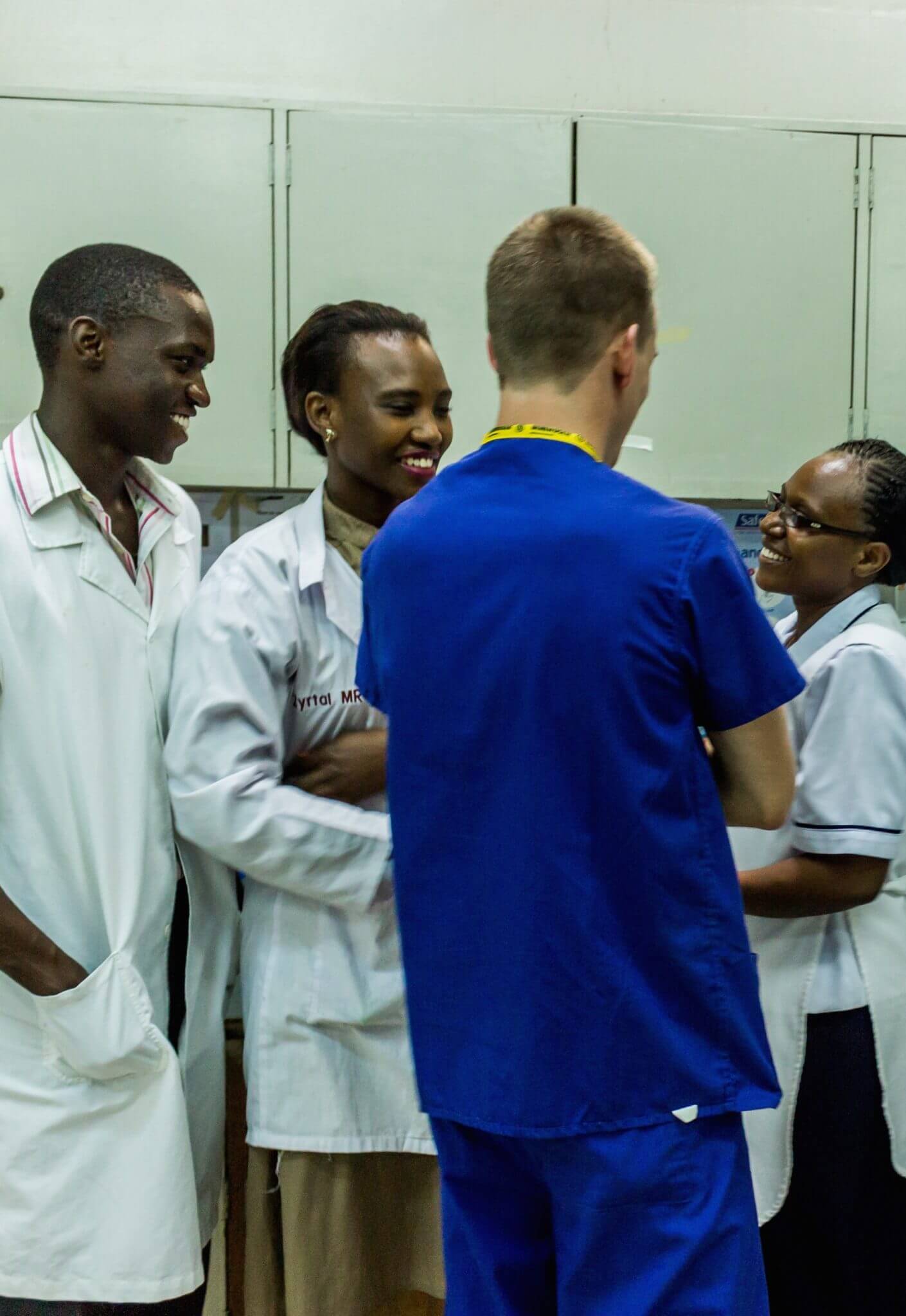

Dr. Aarif Varvani
- Head Physician Mentor, East Africa; Senior Medical Officer, Coast Provincial General Hospital
Dr. Aarif Varvani is a Senior Medical Officer at the Coast Provincial General Hospital and a valued member of the IMA hospital mentorship team in Kenya. Dr. Aarif is an experienced practitioner and educator who is approachable, patient, and very keen on sharing knowledge with interns and students. Dr. Aarif’s specialty is internal medicine with an interest in cardiology. He was part of the team that pioneered the recently opened Cardiac Center at the Coast Provincial General Hospital.










Phares issuing one of International Medical Aid’s intern with a Certificate of Completion




Phares issuing one of International Medical Aid’s intern with a Certificate of Completion


About Dr. Aarif Varvani
-
How long have you lived in Kenya? What is your favorite part of living in Mombasa?
I am born and raised in Kenya. I love the diversity in culture and the spirit of togetherness amongst the people.
-
How did you get involved with International Medical Aid?
I got involved with International Medical Aid while working at the Coast Provincial General Hospital as a Medical Intern where I got to mentor some of IMAs Pre-Health students. I have worked with IMA since then, mentoring interns at the hospital as well as leading the Hospital Orientation and Suture Simulation Clinics on behalf of IMA
-
What important things should participants know about Kenya prior to departure?
Malaria Prophylaxis is a must-have before and during your time in Kenya but most importantly, Kenya is a home away from home.
-
When, in your opinion, is the best time of year for interns to travel to Kenya?
Summer, the weather is very warm and favorable, there are also many tourist activities to take part in. Most beach festivals take place around this time bringing together people of different nationalities.
-
What does a typical orientation include?
A typical orientation involves a tour of the hospital with a debriefing on the various departments, common disease conditions and the pathway followed by a patient from registration and admission to discharge. An orientation is never complete without a photo session.
-
One of the common challenges faced by participants when undertaking a program abroad is coping with culture shock. How does International Medical Aid assist
Often, IMA organizes Clinical Debriefing Sessions where interns have discussions and make comparisons between the healthcare system in Kenya and their home countries. The program mentors, Phares and Christabel are also very warm, supportive and responsive to interns, they always have a solution to everything.
-
How does IMA ensure every intern has a fulfilling experience?
IMA is well structured assuring that interns under their programs receive proper mentorship across the various departments. Also, the not-for-profit model that sees IMA give back to the community also allows interns to make a meaningful contribution to disadvantaged communities while learning and gaining the required patient care experience.
-
What makes your program unique to others?
As a developing country, access to healthcare services in Kenya is very low. I am proud to be part of an organization that is constantly reaching out to underserved communities to provide basic healthcare services.
-
Why should future participants be excited to join International Medical Aid?
International Medical Aid offers a rare opportunity to work under Kenya’s healthcare system which can be quite challenging but at the same time very rewarding.
Program Locations
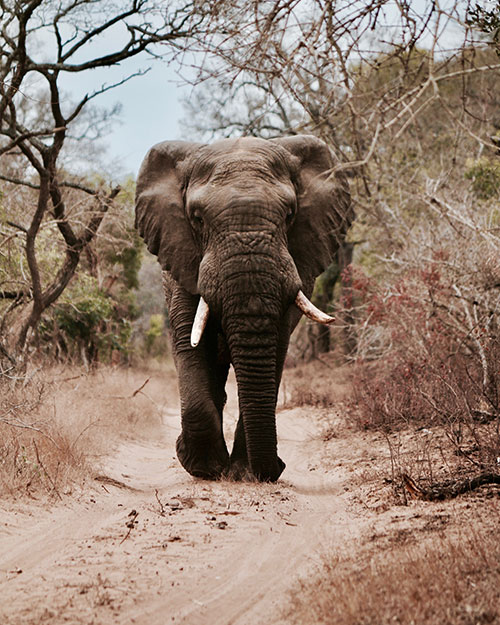

Kenya
As a country, Kenya is considered to be a relatively stable and rapidly developing region of East Africa. While there is a growing middle class, there is also continued poverty, a health care system that is still quite deficient, a continuing burden of communicable diseases and areas of tribal conflict.
While there is a Kenya Health Policy in place, and healthcare goals identified, there is still a large portion of the population suffering from malaria, tuberculosis, and HIV/AIDS. These issues are exacerbated by significant inequalities in healthcare distribution, and the prevalence of these communicable diseases result in high mortality rates, especially among the children.
A substantial portion of the population lives well below the poverty line. The most vulnerable populations are women and children who reside in the slums outside Nairobi and Mombasa in addition to those living in the northern region. There is a lack of infrastructure, medical facilities, hygiene practices, and the continuing internal strife in the region that further intensifies the issues in the region.
IMA has been an established presence in the region since May 2013. partners with Coastal Provincial General Hospital. We now have a full-time medical director and mentors on staff there bridging the gap left between the lack of resources and knowledge and the future of their country.
We continue to work with community leaders and tribal authorities to continue to assist the communities we work with to take the next steps forward in the modernization of their healthcare systems.
Tanzania
Tanzania is home to Mt. Kilimanjaro, Serengeti National Park, and high tourism revenue. Despite this, it is still one of the poorest countries in the world with a high percentage of the population living well below the poverty line. Communicable diseases such as malaria and HIV/AIDS plague the population; a burden that is seen in the high mortality rates. There is inadequate access to medical facilities and a general deficit to the health care infrastructure. The limited resources of the country’s national health initiatives mean that the high percentage of the population living in poverty continue to suffer.
IMA has had a presence in Tanzania since May 2013 through the establishment of mobile medical hygiene clinics. We have been developing our own network of trusted physicians, patient coordinators, and Medical Director to provide a seamless medical program throug pharmacies and referral clinics. Our operations are staffed by international doctors, overseas volunteers, medical students. We continue to work to design the most effective public health program through cooperation with tribal and local leaders. This presence is enhanced through the opportunities we provide students and licensed healthcare personnel to volunteer there.
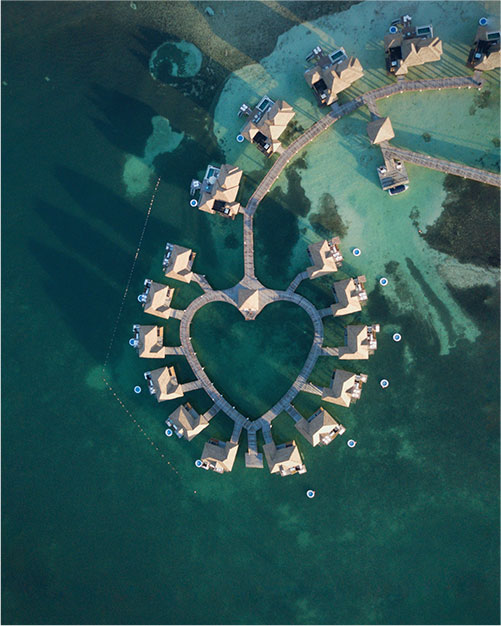

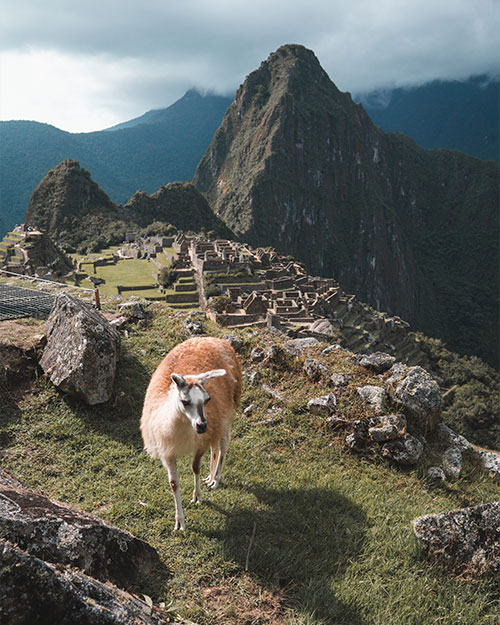

Uganda
Uganda is in a state of political stability and economic growth following years of civil unrest. The middle class is growing and signs of significant urbanization abound; however, there is still approximately 23% of the population living well below the poverty line living mostly in rural areas. This expansion has also given the country the second-highest population growth in the world with the population expected to double over the next 20 years. While this growth is positive, it does apply pressure that can ultimately stagnate it. Healthcare, while drastically improved, still needs a focus on improvements through expanded access to care, improvement to both maternal and infant mortality, and limiting the spread of communicable diseases. With approximately 1.5 million members of the population living with HIV/AIDs, and the added burden of hemorrhagic fever outbreaks, significant improvement to their medical resources needs to be a priority.
IMA began a series of mobile medical and hygiene clinic operations in May 2013 and continues to grow our network of trusted physicians and other healthcare personnel. We also continue to work with local and tribal leaders to customize public health programs for communities.
Haiti
Haiti is the poorest country in the Western Hemisphere and is plagued by instability, both social and political. The country is still recovering from the January 2010 7.0 earthquake that devastated the country and left over 1.5 million people homeless. While media attention and assistance poured in at the beginning, this has waned leaving the country with deficits in nutrition, health services, and health care infrastructure. Thousands die needlessly every year due to malnutrition, infectious diseases, and a general lack of access to medical services.
Beginning in May 2013, IMA has established an operation that began with the deployment of our mobile medical and hygiene clinics. Due to their dire need, we have expedited our operational growth in the area. We have integrated a Public Health Survey into our campaign to better understand the needs and overall community conditions so we can provide the best services.




Columbia
Columbia is in a state of transition with increased urban population numbers and a growing middle class. The economy has significantly improved and peace is improving. Unfortunately, over six million people are still displaced after more than 50 years of the civil war that ravaged the country. Widespread violence, particularly gender-based and sexual in nature, continues to be a problem. The UN Refugee Agency aids these vulnerable populations which are mostly the indigenous people. Humanitarian strategies continue as over 1.8 million children are being affected by the repercussions of the wars which include mutilation from land mines, limitations due to war zones, and the continued presence of various armed groups.
Access to drinking water, lavatories, and facilities for washing are lacking. While the status of the company is definitely improving, rapid development has left an increase in chronic diseases such as obesity and heart disease as well as a lack of education regarding the prevention of them.
IMA operations have been in place since 2012, and international educators, social workers, and volunteers provide resources for education, recreation, and mentorship of at-risk children and teens. We continue to strive to improve the health of those populations already being served by established governmental groups and initiatives.
Ecuador
Ecuador is one of the poorest countries in Latin America. The per capita income is less than $5,000. Their healthcare system is archaic and plagued by corruption and mismanagement that continues to be widespread. The healthcare system is fragmented due to Government decentralization efforts despite the presence of a universal healthcare system.
Ecuadorians continue to suffer from a lack of access to even the most basic of healthcare. Wellness initiatives are limited. Things are even worse in the more rural areas and with the indigenous populations. The country spends less than an estimated 47 times less on healthcare per person than the United States. As a result, fewer than 1.5 hospital beds exist for every 1,000 people. Infant mortality is among the highest in South America. Unfortunately, their public healthcare system ultimately serves less than half of the population. The groups most underserved include members of the rural population, migrant workers, and many women and children. The prospect for improvement is great, and IMA has had a presence here since 2012.
In partnership with an established non-governmental group known as UBECI or United to Benefit Ecuadorian Children, International, IMA operations will continue to grow through our proven model of providing mobile medical and hygiene clinics. We will continue to strive to improve the health and outlook of the region through strategic operations and initiatives.




Peru
Peru has long been known for its ancient culture, primarily the Inca Empire. The country includes biodiversity in for form of their beaches, mountains and Amazon jungle. There is extreme poverty among the indigenous cultures exacerbated by the ruthless attempts by guerilla factions that have tried to overthrow the government and increase their illegal production of the coca plant.
Improvements have been seen in the last decade, and the poverty rate has dropped. However, there is still a significant disparity between the urban and rural communities that is intensified by a lack of education as impoverished children continue to drop out of school to work.
The Peruvian health care system is decentralized into various divisions in both the public and private sectors. There is a lack of trained professionals and inadequate funding which leaves patient-needs lacking. While a little more than 50% of the population lives in the coastal areas, that is where 80% of the country’s physicals can be found. The implementation of universal health insurance has increased the need for trained healthcare professionals. The government is working to alleviate the issues by providing incentives to professionals willing to work in rural areas. Services are being reallocated more evenly across the country as a result.
Adventures
- Selous Game Reserve in Tanzania
- Mafia Island, Zanziba
- Ngorongoro Conservation Area
- Mount Kilimanjaro, Tanzania
- Serengeti National Park, Tanzania
- Kafue National Park, Zambia
- Lower Zambezi River, Zambia
- Victoria Falls, Zambia
- Lamu Island, Kenya
- Hell’s Gate National Park, Kenya
- Tsavo National Park, Kenya
- Maasi Mara Reserve, Kenya
- Mt. Kenya, Kenya
South American Internships may have the opportunity to visit:
- Selous Game Reserve in Tanzania
- Mafia Island, Zanziba
- Ngorongoro Conservation Area
- Mount Kilimanjaro, Tanzania
- Serengeti National Park, Tanzania
- Kafue National Park, Zambia
- Lower Zambezi River, Zambia
- Victoria Falls, Zambia
- Lamu Island, Kenya
- Hell’s Gate National Park, Kenya
- Tsavo National Park, Kenya
- Maasi Mara Reserve, Kenya
- Mt. Kenya, Kenya
Haitian Internships will be given the opportunity to visit the National History Park in Haiti.
Our Program
The IMA Volunteer Internships program is designed to give the budding student of medicine the opportunity to experience first-hand the trials and tribulations that come with the practice of medicine in developing third world countries. While the interns themselves confirm their dedication to the science of medicine, they have the opportunity to help make a difference where it is needed the most.
Rotations
Your son or daughter will have daily rotations shadowing essential healthcare personnel and their mentors. They will also have the opportunity to take on extra rotations overnight to prepare them for the medical school and residency experience.
Lecture Description 1
Title Name 1
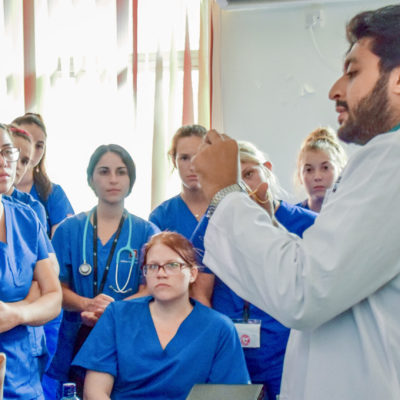
Lecture Description 2
Title Name 2
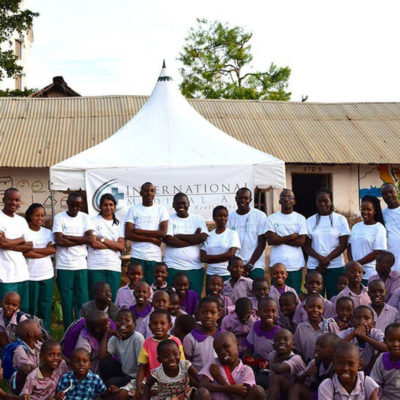
Lecture Description 3
Title Name 3
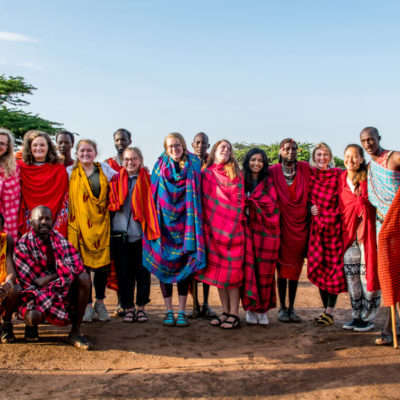
Lecture Description 4
Title Name 4
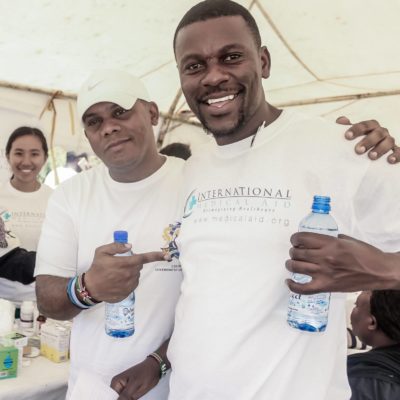
Lecture Description 5
Title Name 5
Shadowing
During their volunteer internship, your son or daughter will spend most of their time involved in the shadowing program. This program benefits the intern by allowing them to observe, up close and personal, the day-to-day operations of healthcare professionals and mentors. The program benefits the mentors by allowing them to teach professionalism and ethical behavior necessary for a successful health care career in a real-time environment.
Most importantly, it gives the students a taste of the realities of a career in medicine. If your child has aspirations towards surgery, their experience will take place observing actual surgeries take place while standing next to the surgeon. There are other times where they will observe situations that they might not be a part of during their healthcare career. Many times our IMA professionals find themselves in a predicament where the most basic resourcefulness comes from the lack of the necessary equipment or supplies is a common circumstance.
The AAMC has very strict guidelines that must be followed in these shadowing situations. At no time is the intern to participate as anything other than an observer. They will not be actually practicing medicine as the violation of these important operational guidelines would be construed as a violation of the ethical code behind the privileges and rights of the doctors and patients as well.
The bottom line is that the shadowing internship experience will reinforce their drive to be a part of the medical community. IMA only accepts those candidates who are completely dedicated to their career path and are ready to move forward into their future in medicine.
We at IMA want the clinical experience of our interns to feed their passion for science and medicine. We want to help the next generation of doctors and nurses by giving them an experience that will change the way they view the medical education they are on the verge of receiving. An experience that will change everything about their lives. We believe that the clinical experience gained in a developing country will allow them to grow in ways that most people cannot imagine. It will truly change everything about their view of the world and healthcare.
Lecture Description 1
Title Name 1

Lecture Description 2
Title Name 2

Lecture Description 3
Title Name 3

Lecture Description 4
Title Name 4

Lecture Description 5
Title Name 5
Clinical Simulations and Lectures
In addition to the hospital rotations, there will be opportunities to learn through clinical simulations they will be a part of during their days. These simulations might take the form of being shown various procedures such as intubation, suturing, or starting an IV. There are no actual patients used during the simulation, and the skills are only introduced. This will not be the time to try a procedure on an actual patient. As previously mentioned, those things will wait for the traditional training found in Medical School.
A sampling of the lectures from our Kenya program follows.
Lecture Description 1
Title Name 1

Lecture Description 2
Title Name 2

Lecture Description 3
Title Name 3

Lecture Description 4
Title Name 4

Lecture Description 5
Title Name 5
Volunteering
On the weekends and in the afternoons following rotation, the interns are given the opportunity to work with the community outreach clinics in the region. An important part of the internship experience is interaction with the people in the region. Only then, can their experience be complete. The outreach clinics visit children’s homes, homes for the elderly, orphanages, and similar facilities to educate them about hygiene, teach children appropriate care of their teeth, or expectant mothers how to prepare for their children. These are areas that are sorely lacking, and ones that we have taken care to educate the tribal leaders so that these local folks will take seriously the lessons they learn.
Medical School Admissions Consulting
One of the benefits that proves valuable to our interns is our Medical School Admissions Consulting services. Our staff and mentors will assist your son or daughter with their medical school applications, assist them with extensive preparation for their medical school interviews, and help them prepare their applications for their secondary choices.
Cost and Payment
Program Fees
(Exclusive of $650 Program Deposit)
| East Africa | South America | ||||||||||
|---|---|---|---|---|---|---|---|---|---|---|---|
| Duration | Kenya | Tanzania | Rwanda | Uganda | Equador | Colombia | Peru | ||||
| Mombasa | Malindi | Migori | Arusha | Moshi | Kigali | Kampala | Quito | Guayaquil | Bogota | Lima | |
| 2 Weeks | $2,950 | $2,950 | $2,950 | $2,950 | $2,950 | $2,850 | $2,850 | $3,000 | $3,000 | $3,000 | $3,000 |
| 3 Weeks | $3,450 | $3,450 | $3,450 | $3,450 | $3,450 | $3,450 | $3,450 | $3,450 | $3,450 | $3,500 | $3,500 |
| 4 Weeks | $3,950 | $3,950 | $3,950 | $3,950 | $3,950 | $4,000 | $4,000 | $4,000 | $4,000 | $4,000 | $4,000 |
| 5 Weeks | $4,650 | $4,650 | $4,650 | $4,650 | $4,650 | $4,700 | $4,700 | $4,700 | $4,700 | $4,700 | $4,250 |
| 6 Weeks | $5,350 | $5,350 | $5,350 | $5,350 | $5,350 | $5,400 | $5,400 | $5,400 | $5,400 | $5,400 | $4,450 |
| 7 Weeks | $6,050 | $6,050 | $6,050 | $6,050 | $6,050 | $6,100 | $6,100 | $6,100 | $6,100 | $6,100 | $6,100 |
| 8 Weeks | $6,750 | $6,750 | $6,750 | $6,750 | $6,750 | $6,800 | $6,800 | $6,800 | $6,800 | $6,800 | $6,800 |
| Every Extra Week (Including In-Country Extension) | $700 | $700 | $700 | $700 | $700 | $700 | $700 | $700 | $700 | $700 | $700 |
|
|
|||||||||||
Testimonial
Following are testimonials from former interns, their instructors and their families.
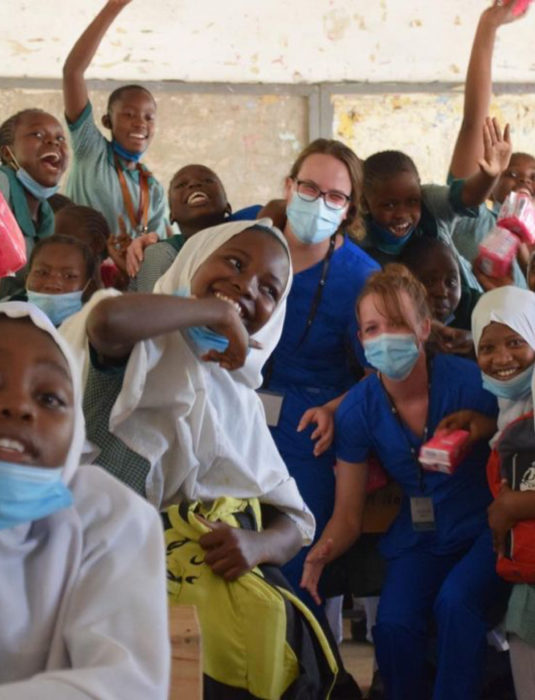
Judy Birchmier
Morningside CollegeExperience Challenged Me To Advocate for Better Healthcare for All
To say my experience in Kenya was amazing would be an understatement. My experience in Kenya with IMA was truly life changing. It opened my eyes to many things including the differences in health care delivery, culture, politics, disease burden and much more. My first day in Kenya I was welcomed at the airport by IMA staff, they immediately made me feel welcome and safe. All Kenyans truly made me feel welcome and safe. There smile, spirit, and culture was immediately evident and welcoming. As we drove to the residence IMA staff gave me a brief education on the areas we were passing by. They pointed out Coast General from the road so I could see just how large the public hospital was from a distance, soon where I’d be interning. They pointed out the different shops (how most make a living in Kenya) and the differences in driving from what I am accustomed to in the United States. Upon arrival to the residence, they helped me get my bags......
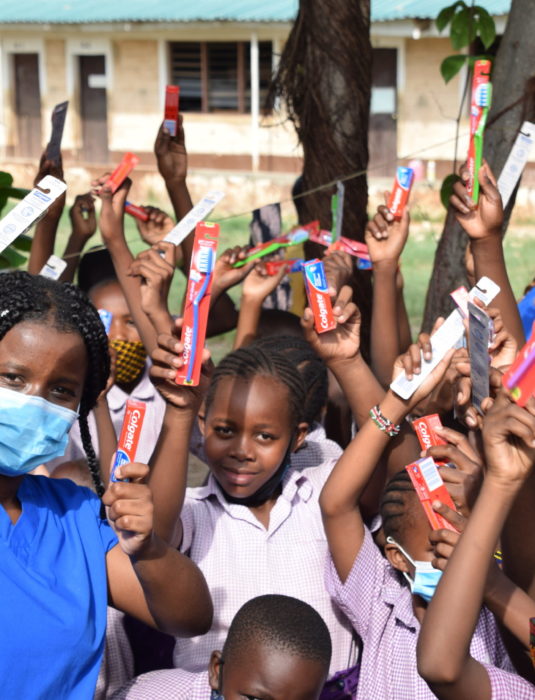
Sarah B.
University of OttawaHome Away from Home
My accommodations were better than when I go on a personal vacation: always got the best food, having a chef allowed us to get to taste so many different food from the country, beautiful home, so comfortable, absolutely felt like a home away from home! There is so much support from the IMA crew, always someone there for you, they even provide you with a SIM card to make sure you have a way to communicate with them and others at anytime. Our mentor was always available through e-mail and replies so fast. No matter what was the resquest, they found a way to answer to it and made it safe for all the interns. Only positive comments really! I went on the Safari in Nairobi: loved the fact that the IMA team had everything set for you once you had paid the required fee like the plane tickets, the rides from the airport to hotels, rides all over the city, some of the meals, etc. You had one job......
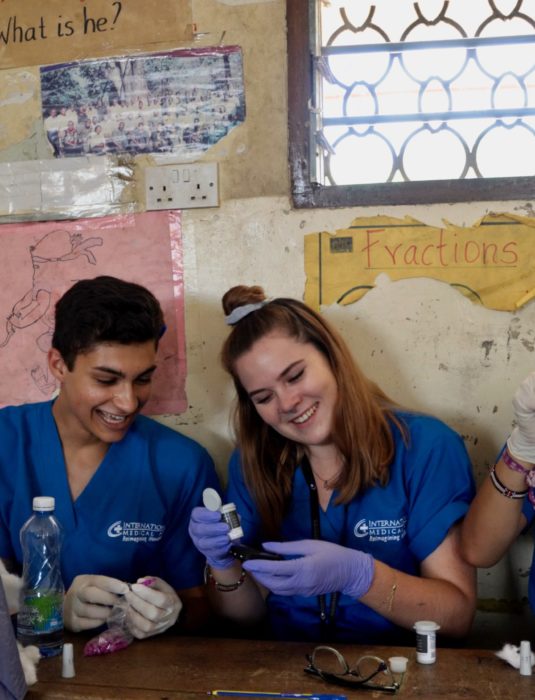
Isabelle Hammack
San Francisco State UniversityForever Changed My Life and My Perspective on Healthcare
My experience in Mombasa was life changing. The people I met and all that I learned while working at CPGH was irreplaceable. I worked in the nutrition department at CPGH and saw so many different types of conditions and learned so much about the health care system in Kenya. The support from the International Medical Aid’s staff was amazing. Bella and Husna were always there when I needed something and I felt like they truly cared about my well-being and experience. The food at the house was AMAZING to say the least. I am a pescatarian and don’t eat poultry or red meat and they were so accommodating! Their fish was so delicious and tasted so fresh. All of the cooks were so sweet as well and they even let me use the kitchen one night to bake chocolate chip cookies! International Medical Aid and my trip to Kenya was truly amazing and I can’t wait till I get to go back one day. The impact this experience had......

Judy Birchmier
Morningside CollegeExperience Challenged Me To Advocate for Better Healthcare for All
To say my experience in Kenya was amazing would be an understatement. My experience in Kenya with IMA was truly life changing. It opened my eyes to many things including the differences in health care delivery, culture, politics, disease burden and much more. My first day in Kenya I was welcomed at the airport by IMA staff, they immediately made me feel welcome and safe. All Kenyans truly made me feel welcome and safe. There smile, spirit, and culture was immediately evident and welcoming. As we drove to the residence IMA staff gave me a brief education on the areas we were passing by. They pointed out Coast General from the road so I could see just how large the public hospital was from a distance, soon where I’d be interning. They pointed out the different shops (how most make a living in Kenya) and the differences in driving from what I am accustomed to in the United States. Upon arrival to the residence, they helped me get my bags......

Sarah B.
University of OttawaHome Away from Home
My accommodations were better than when I go on a personal vacation: always got the best food, having a chef allowed us to get to taste so many different food from the country, beautiful home, so comfortable, absolutely felt like a home away from home! There is so much support from the IMA crew, always someone there for you, they even provide you with a SIM card to make sure you have a way to communicate with them and others at anytime. Our mentor was always available through e-mail and replies so fast. No matter what was the resquest, they found a way to answer to it and made it safe for all the interns. Only positive comments really! I went on the Safari in Nairobi: loved the fact that the IMA team had everything set for you once you had paid the required fee like the plane tickets, the rides from the airport to hotels, rides all over the city, some of the meals, etc. You had one job......

Isabelle Hammack
San Francisco State UniversityForever Changed My Life and My Perspective on Healthcare
My experience in Mombasa was life changing. The people I met and all that I learned while working at CPGH was irreplaceable. I worked in the nutrition department at CPGH and saw so many different types of conditions and learned so much about the health care system in Kenya. The support from the International Medical Aid’s staff was amazing. Bella and Husna were always there when I needed something and I felt like they truly cared about my well-being and experience. The food at the house was AMAZING to say the least. I am a pescatarian and don’t eat poultry or red meat and they were so accommodating! Their fish was so delicious and tasted so fresh. All of the cooks were so sweet as well and they even let me use the kitchen one night to bake chocolate chip cookies! International Medical Aid and my trip to Kenya was truly amazing and I can’t wait till I get to go back one day. The impact this experience had......
